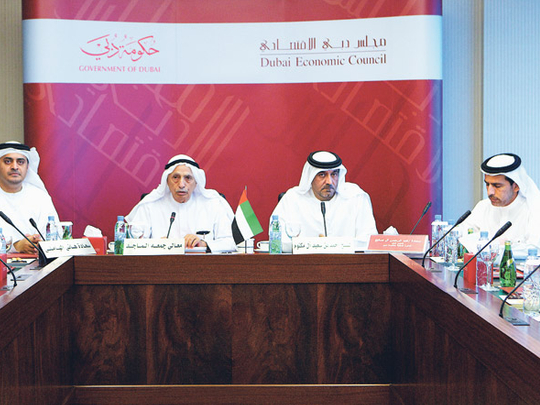
Dubai: The emirate's businesses and entrepreneurs should focus on core or pivotal sectors that contribute to promoting Dubai as an important business centre, Shaikh Ahmad Bin Saeed Al Maktoum, President of Dubai Civil Aviation and Chairman and Chief Executive of Emirates Airline and Group, told the Dubai Economic Council (DEC).
These sectors include trade, tourism and logistics, he said at a recent meeting of the DEC chaired by Juma Al Majid.
Shaikh Ahmad also stressed the important role of the private sector in proposing economic policies to enhance economic development. "No country was immune to the global financial crisis; however, the recent macroeconomic indicators of Dubai show clear improvement compared to many countries in both the region and the world," he said.
The meeting was organised by the DEC's secretariat to get an update on the Government of Dubai's efforts to deal with the global economic changes and their direct impact on the emirate. Abdul Aziz Al Ghurair, Chairman of the Federal National Council; Abdul Rahman Al Salih, director-general of the Dubai Finance Department, and representatives of a number of economic sectors attended the session. Hani Al Hamli, DEC secretary-general, was also present.
Shaikh Ahmad said the Government of Dubai constantly seeks to sustain the economic development of the emirate.
"The Government has advocated a package of policies and arrangements to mitigate the global downturn," he told the DEC.
The positive reaction to the debt restructuring announced by Dubai World was a reflection of Dubai's resilience and the perception about its companies in the global economy, he said.
Al Majid said the DEC was created to give local businesses a say in crafting the economic policies of Dubai.
"It is important to direct economic policies towards boosting entrepreneurship and innovation, and to increase the productivity for the aim of higher and sustainable economic growth rate. This can be achieved if the UAE Central Bank and the local banks pursue steps similar to those taken by the banks in the US and Europe," Al Majid said.
Al Majid argued that the value-added tax (VAT) project agreed among GCC states to compensate losses from customs tariffs when signing free-trade agreements with other countries would not benefit the UAE's economy. "Such a project needs institutional readiness," Al Majid said and added that he preferred to keep the customs tariff mechanism to fuel public revenues with the possibility of revisiting the VAT project in future."











